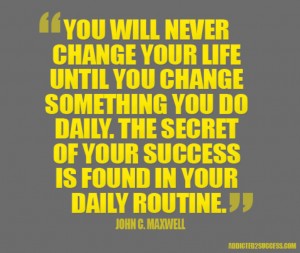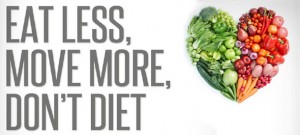 Dr. Sherry Pagoto grabbed my attention on twitter with her wisdom, knowledge, and inspiring wit. Perhaps my favorite hook is her fabulous #plankaday revolution campaign, which has inspired me to commit to planking at least once a day for a year…and sometimes once an hour (#plankanhour), which she and her colleague, Mike, and also the fun Plank Police, will support, encourage, and even participate along with you, if you ask!
Dr. Sherry Pagoto grabbed my attention on twitter with her wisdom, knowledge, and inspiring wit. Perhaps my favorite hook is her fabulous #plankaday revolution campaign, which has inspired me to commit to planking at least once a day for a year…and sometimes once an hour (#plankanhour), which she and her colleague, Mike, and also the fun Plank Police, will support, encourage, and even participate along with you, if you ask!
Dr. Sherry Pagoto is a licensed clinical psychologist and an Associate Professor of Medicine at the University of Massachusetts Medical School. Her expertise is in health, nutrition, fitness, weight management, depression, stress, cancer prevention, and type 2 diabetes.
She and her colleague, Bradley M. Appelhans, recently published a critical and compelling article in the Journal of the American Medical Association (one of the top, most respected peer-reviewed journals) calling for an to the diet debates. The argument is that the public is being exposed to mixed messages about weight loss because of the inability of the science to reach conclusive solutions. And that the research perpetuates and supports fad diets, not at all beneficial to our growing obesity epidemic. I recently had the opportunity to ask Dr. Pagoto where the real solutions lie and she has some fascinating, logical, and helpful answers…here is our interview:
JH: Your JAMA article states: “Progress in obesity management will require greater understanding of the biological, behavioral, and environmental factors associated with adherence to lifestyle changes including both diet and physical activity.” How do you propose we best address these avenues? Does the research show ideal strategies that are most efficacious when dealing with these issues?
SP: We really need more research on these factors. Some research suggests that unhealthy diets, sedentary lifestyle and weight gain can change our brains such that we crave unhealthy foods more and have poorer self-control. If this is the case, then diets that are highly restrictive may be a bad prescription. Exercise has been shown to improve self-control (by impacting the areas in the brain that control our impulses), but is typically only thought of as a way to burn calories. Interventions should leverage exercise as a means to increase self-control. In terms of environmental factors, research shows that self-control is only a factor when we are confronted with temptations. This points to strategies that help people remove tempting foods from the home and workplace. A third factor is social support. Our social circles may be reinforcing unhealthy habits and be a major cause of setbacks. Helping people identify how their social interactions may be undermining their health may be very important to long-term success.
 JH: Thank you for addressing the macronutrient distribution obsession. It may be the first time I have seen it addressed in such a scholarly forum and I am excited to address it! You stated that adherence is number one. Please elaborate on this issue and how the research seems to simply dispute its significance.
JH: Thank you for addressing the macronutrient distribution obsession. It may be the first time I have seen it addressed in such a scholarly forum and I am excited to address it! You stated that adherence is number one. Please elaborate on this issue and how the research seems to simply dispute its significance.
SP: There have been a lot of studies trying to figure out the best diet formula by comparing different macronutrient composition diets to one another, but when you look at systematic reviews of all of this research, no single diet comes out on top. There really is no reason to believe that one diet will work for all. Promoting one diet for all is likely to be counterproductive to the people who aren’t likely to be very adherent to that diet. The best diet for any one person is the one they are most likely to stick to. When I work with patients I have them focus on keeping their diet composition fairly intact and just reducing quantity, eating frequently to avoid periods of intense hunger, and slowly working in healthy substitutes. I use a quantity first, quality second approach to diet change. People don’t seem to last long when their entire diet is overhauled—they end up missing their old foods and then quitting.
 JH: You have successfully turned fitness into fun and inspiration with your #plankaday campaign (which I have joyfully latched onto). How can we extend the necessity of overcoming sedentary lifestyle to the mass public who has accidentally and unnoticeably slipped into it?
JH: You have successfully turned fitness into fun and inspiration with your #plankaday campaign (which I have joyfully latched onto). How can we extend the necessity of overcoming sedentary lifestyle to the mass public who has accidentally and unnoticeably slipped into it?
SP: I love using social media to promote physical fitness because it makes it so fun. I didn’t plan on #plankaday taking off, it just started as something a friend and I were doing for ourselves. Over time so many people hopped on the bandwagon, we built it up to include the @plankpolice and @plankadaynation. I think fun social challenges in the workplace are particularly important since that is where many of us log our sedentary hours. Would love to see exercise breaks during primetime TV too! Perhaps we can coax companies into turning their commercials into fun exercise breaks!
JH: One of your interests lies in translating research into practice and that is where most practitioners (and people) get stuck. Please offer us any tips you have learned in inspiring behavioral changes that will enhance weight loss and weight loss maintenance.
SP: One of my pet peeves about research (and I’m a researcher!) is that studies often exclude people who are most likely to need help. For example, as a clinician I noticed that there were no weight loss studies for people with depression, even though at least 1/3 of my patients had depression. These patients didn’t do as well with evidence-based programs and I didn’t know what to do for them. I have now made that a big focus of my research. Often patients have psychological or medical conditions that affect their ability to benefit from standard programs. For these patients I look into the research pertaining to their other condition and see if I can come up with ways to address both conditions. I think we need to take a “whole patient” approach, not just treating their weight issues, but trying to understand the psychological and medical context of their weight issue.
JH: What are the top 3 things people can do to find their ideal diet and lifestyle plan that they will adhere to?
1. Start by just trying to eat less of your current diet. The best way to do this is with a weight loss mobile app like MyNetDiary, MyFitnessPal, or Lose it. Once you have done a good job of reducing quantity, then focus on quality (high fiber, lean protein, fruits and veggies, etc)
 2. With exercise, start very small. Focus on consistency first. Then duration. Then intensity. This means try to exercise on as many days as you can (consistency) but for very short periods of time (even just 5 minutes!). Once you have consistency, increase your duration very slowly. Then finally you can work on increasing the intensity. A big mistake people make is kicking off their exercise regimen at high frequency, duration and intensity and then they poop out because it was too much, too soon.
2. With exercise, start very small. Focus on consistency first. Then duration. Then intensity. This means try to exercise on as many days as you can (consistency) but for very short periods of time (even just 5 minutes!). Once you have consistency, increase your duration very slowly. Then finally you can work on increasing the intensity. A big mistake people make is kicking off their exercise regimen at high frequency, duration and intensity and then they poop out because it was too much, too soon.
3. Be sure to change your shopping habits such that foods that you tend to overeat no longer end up on the list. I don’t believe in forbidden foods, but I do believe that some foods should be forbidden from your home. For example, if ice cream is your weakness, don’t keep it in the house. Make a trip out to get a single serving if you really feel like it, because keeping it in the fridge is the recipe for eating it way more than you’d like. A healthy lifestyle requires a healthy home!
[/fusion_builder_column][/fusion_builder_row][/fusion_builder_container]





This Post Has 2 Comments
Here's the secret to weight loss: It's all about crowding out, not cutting out.
Kathy Freston
ginger for weight loss – ginger and weight loss
https://www.youtube.com/watch?v=iF2vXOvwxo4
As I work together with my fat loss clientele the first thing I do is have them move using their extremely refined diet into a a lot more paleo method, centering on proteins and veggies